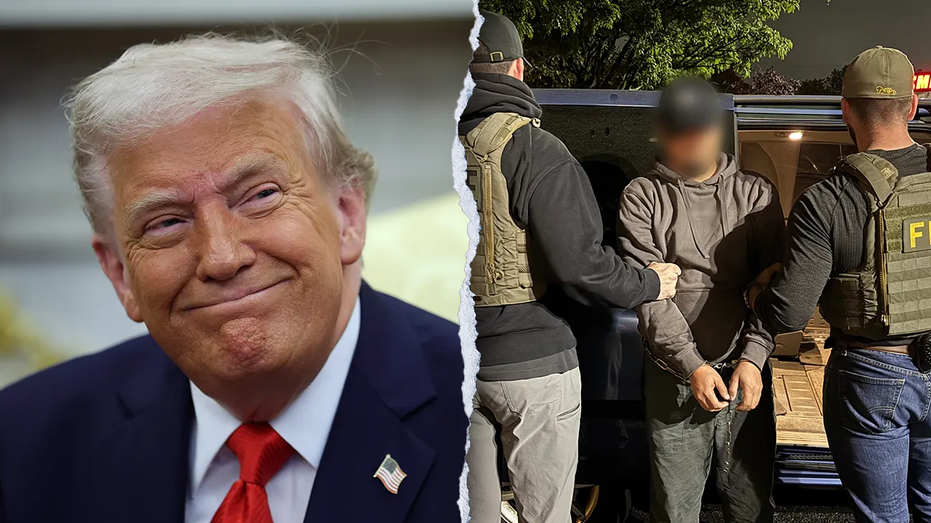White House Celebrates 'Blockbuster' Week Advancing Trump's Immigration Agenda
The White House hails a "blockbuster" week boosting Trump's immigration agenda, claiming it’s a tough day for illegal aliens but a great one for Americans.

The White House is touting a series of sweeping actions on immigration enforcement, even as controversy swirls over the reported return of alleged gang member Kilmar Abrego Garcia to the United States. Administration officials are emphasizing that this week marked a peak in efforts to secure the southern border and crack down on illegal immigration, with a spokesperson declaring, "It’s a bad day to be an illegal alien and a great day to be an American."
This declaration comes on the heels of Operation Patriot, which officials describe as the largest Immigration and Customs Enforcement (ICE) operation in U.S. history. Nearly 1,500 illegal immigrants were arrested in Massachusetts—significant for being one of the nation’s bluest states. ICE agents did not stop there: reports indicate more than 2,000 arrests took place on Tuesday, followed by almost 2,500 on Wednesday, marking an intense surge in enforcement activity. Since President Donald Trump took office, ICE has detained over 100,000 individuals it says are in the country illegally.
Over the weekend, authorities in South Carolina conducted a dramatic raid at what they described as a "cartel after-party." Eighty illegal aliens were taken into custody, including two suspected "high-level cartel members" connected to Mexico’s Los Zetas and Venezuela’s Tren de Aragua gangs. Among those arrested was a Honduran national reportedly named in an international murder case, underlining the administration’s message that immigration enforcement is targeting alleged violent criminals.
Administration officials are also highlighting a spike in deportation flights, which reached their highest level yet during this administration. In a recent operation out of Houston, 142 criminal aliens were deported to Mexico, including individuals with convictions ranging from child predation to human trafficking and making terroristic threats. These moves, according to officials, are part of a broader strategy to restore law and order along the nation's borders and in its communities.
Drug interdiction efforts are also being emphasized. ICE, working in tandem with U.S. Customs and Border Protection, announced what they described as a "game-changing" seizure: 50,000 kilograms of methamphetamine precursors destined for the notorious Sinaloa Cartel. Chad Plantz, special agent in charge of ICE Homeland Security Investigations Houston, said the collaboration represents a turning point in the fight against cartels, allowing authorities to disrupt supply chains critical to the production of illicit drugs.
Further details provided by sources familiar with this week's operations reveal arrests of individuals allegedly involved in serious crimes. Among those apprehended: a Salvadoran national in Los Angeles charged with sodomy of a child, a Mexican national in Chicago facing criminal sexual assault of a child charges, and others in Houston, El Paso, and elsewhere wanted for crimes including indecent contact with a child, possession of child pornography, and murder.
White House spokesperson Abigail Jackson called this week "a blockbuster week for President Trump’s immigration agenda," highlighting aggressive action against cartels and traffickers. "President Trump is doing exactly what he promised the American people—securing the Southern border and deporting illegal aliens," Jackson stated. She further asserted that Trump’s efforts have led to a significant reduction in the flow of fentanyl across the border: "Under President Trump’s America First leadership, it’s a bad day to be an illegal alien and a great day to be an American."
The flurry of enforcement activity underscores the administration’s commitment to continuing—and amplifying—its immigration crackdown, even as high-profile cases like Kilmar Abrego Garcia’s remain under scrutiny and critics question both the efficacy and consequences of these policies.




